Have you heard of DRD4-7R? Probably not. It is better known as the adventure gene or the wanderlust gene. DRD4 is a receptor that controls the dopamine levels in our brain. Dopamine is a chemical that is released when we experience something that we enjoy, which is what gives us the feeling of reward or pleasure.
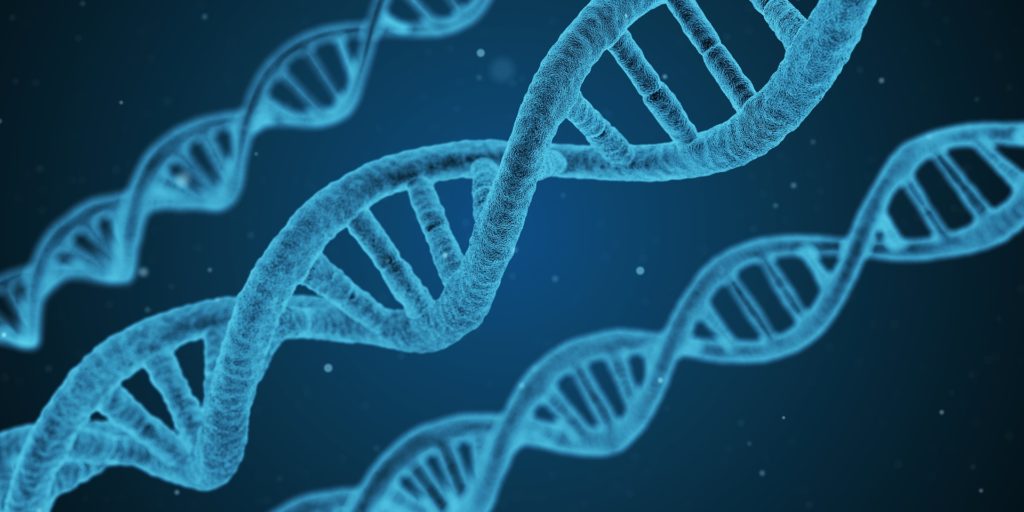
For some people, dopamine can be released from something as easy as enjoying their favourite food or just enjoying a sunny day. However, some people have lower sensitivities to dopamine, which means it takes more for them to feel reward or pleasure.
Extreme sports athletes come to mind when I think of lower sensitivity to dopamine levels. These are the athletes who are chasing 100-foot waves, skiing down near-vertical rock faces and flying their wingsuits so close to a cliffside that they can almost touch it. All this just to feel a bit of excitement. Are they crazy? Not at all, but they likely have the gene variant known as DRD4-7R.
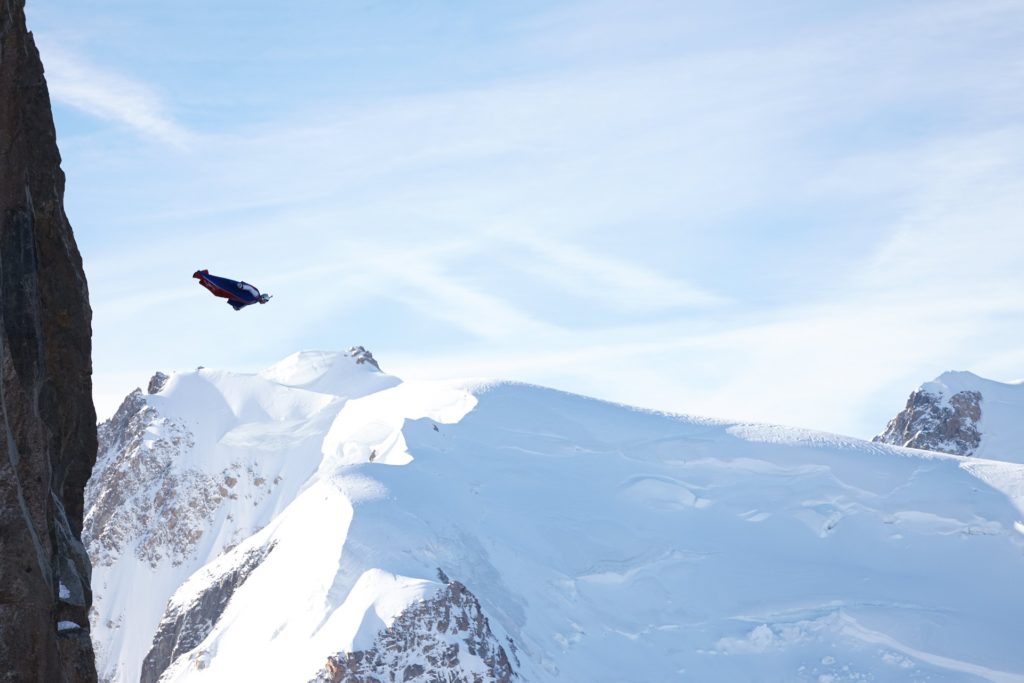
DRD4-7R has been studied for over 20 years now. This gene variant is not completely understood, and it is unlikely that one single gene variant is the cause for adventurous behaviour. However, leading researchers believe there is a link between this gene variant and thrill-seeking tendencies. Approximately 1 in 5 people are thought to possess this gene variant, but this does not mean that 1 in 5 people are ambitious travellers and adventurers.
This gene variant is more specific to how we perceive risk. Some people fulfil their thrill-seeking nature by travelling to a new country or through base jumping, while others do it through the financial risk of playing the stock market or gambling. We all get our “fix” in different ways but DRD4-7R could be the reason behind all of it.

I learned about the adventure gene a few years ago and had always been curious, which is why I decided to do my homework and write this blog. I have always enjoyed extreme sports and people have often asked me if I consider myself an adrenaline junkie. I usually tell them that junkies have problems and that I could quit adrenaline if I wanted to. I prefer to think of myself as a connoisseur of adrenaline. Like the difference between being a wine enthusiast or an alcoholic.
I’m not sure if I actually have the adventure gene, but if I had to guess I would say that I do. I have always wanted to push my boundaries and explore new things, even from a young age. I believe the adventure gene runs in my mum’s side of the family. I get it from her, and she gets it from her father (my grandfather). Leading up to our most recent adventure, Whitewater Rafting the Grand Canyon, people were surprised to find that not only was my mum coming on the trip, but it was her idea.
The reason I believe the adventure gene has been passed down by my grandfather is because of his history of exploring the world and seeking out new adventures. He was a doctor in the military and experienced World War II first-hand. During the war, he went to West Africa in a naval convoy and that opened his eyes to a place that he could seek adventure and begin his exploration of the world.
He had a love for Africa because he was a keen hunter and wanted to land the exotic animals that roamed the landscape. He hunted everything from lions to elephants and zebras, and everything in between. I would not condone this type of behaviour now, but he did this several decades ago, before these animals were endangered, and hunted within the rules that were in place at the time.
He did not simply go to a place and shoot an animal, then return home with a trophy. He always wanted the full experience and was in it for the long haul. That’s why he worked as a doctor in Africa for three years immediately after the end of the war. He returned to Africa, several times, in the 1970’s to take friends and family on safari. My mum went with him twice and she got used to living in cloth tents in Africa during her early teenage years.
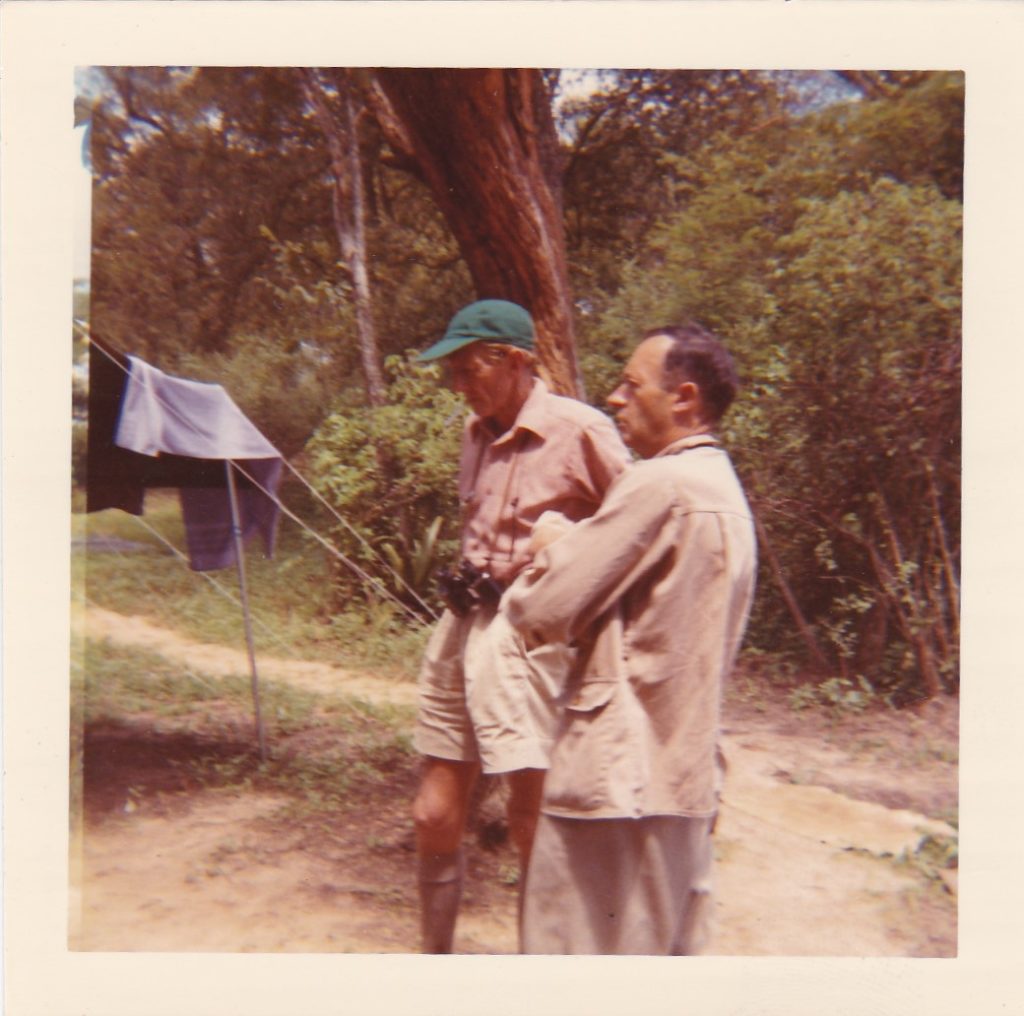
He went for so long because he wanted to form relationships with the locals and understand their customs. He would barter and trade with them to obtain local gifts that no one back home had ever seen. They describe people with the adventure gene as novelty seekers. Well, that was definitely him. He loved original experiences.
In his later years, he gave up hunting and became more of a naturalist. His favourite childhood book was called “Wild Beasts of the World”. He became determined to see every animal in the book and travelled the world doing so.
He spent lots of time in Pakistan in search of the elusive snow leopard. He travelled there many times and the locals always filled him with hope by telling him “There was a sighting two weeks ago”. Their story never changed but neither did his optimism. He returned after one trip claiming that he had caught a brief glimpse of the eye of the snow leopard, through the viewfinder of a telescope, on the last night.
Bird watching also took on another dimension for my grandfather because he made several trips to exotic places to see them. In particular, he was interested in pheasants, birds of prey and owls. One such trip, to see pheasants was to Thyangboche Monastery in Nepal. He made this trip when he was in his mid 50’s and he spent a whole year training for this expedition using the American military 5BX fitness program.
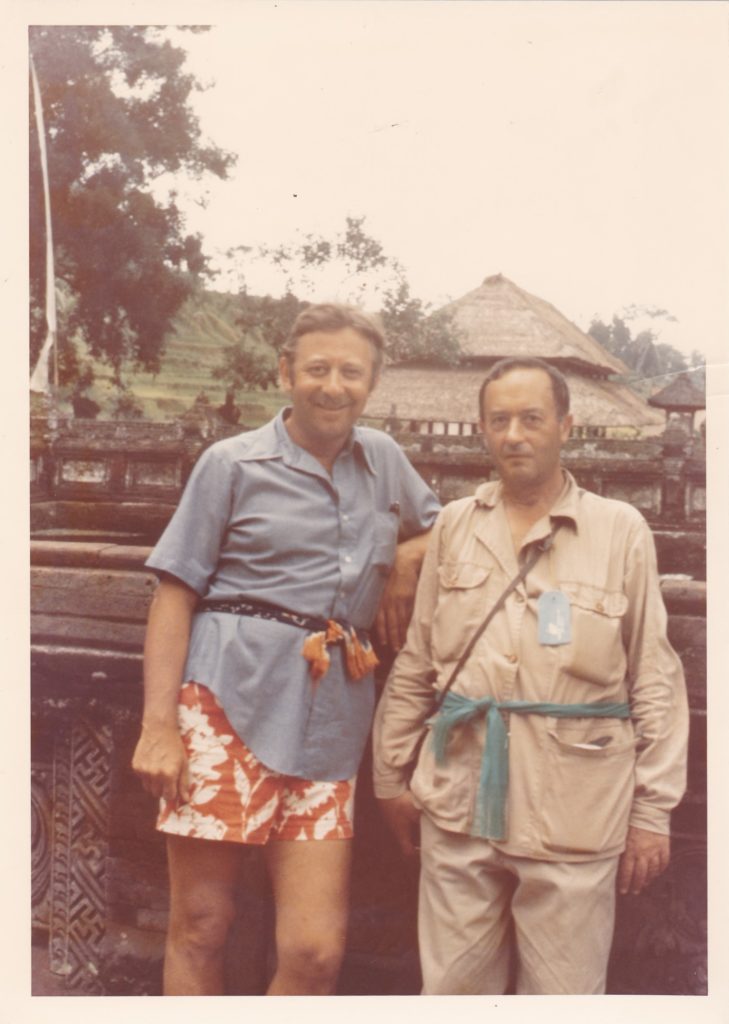
Basically, everything that we love to watch David Attenborough do nowadays, my grandfather was doing decades ago for pure enjoyment and on his own dime. I think that is why I admire him so much. He was just doing it for himself and to enjoy the world.
My grandfather used to come to visit my family for the Christmas period each year and this was when he would tell me all his stories from travelling the world. His stories were incredible, and my mum decided it was time to write his memoirs so that we would always have them. She began the Christmas of 1997, by transcribing his diaries, with the intention of completing them over a few visits. However, when he returned the following year dementia had set in and his stories were no longer coherent. He spent the next sixteen years of his life battling dementia, before he passed away in 2014.
This is why BucketLaunch really hits home for me. All his stories have been lost aside from the titbits that we remember from listening to them over the years. Will I suffer the same fate? Who knows? By documenting all my adventures now, my kids and grandkids will be able to use their smart phones to read all my stories. I hope that one day my stories will have an impact on them the same way that my grandfather’s stories had an impact on me.
Do you think you have the adventure gene? Let me know if the comments below.
Make sure to check back for my next post, which will discuss the lesson learned by completing this item. Want to be notified when new blog posts are uploaded? Subscribe below.
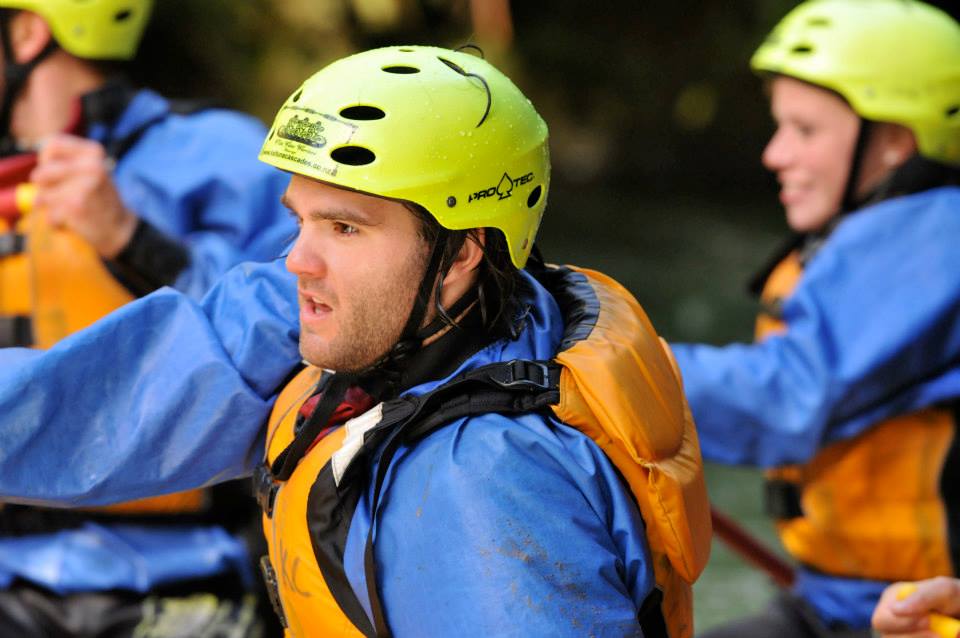
Dave has been on a mission, since 2010, to cross off the 100 items on his bucket list. The stories of his adventures are complimented by life lessons learned along the way and his travel tips are unique to his experiences.

